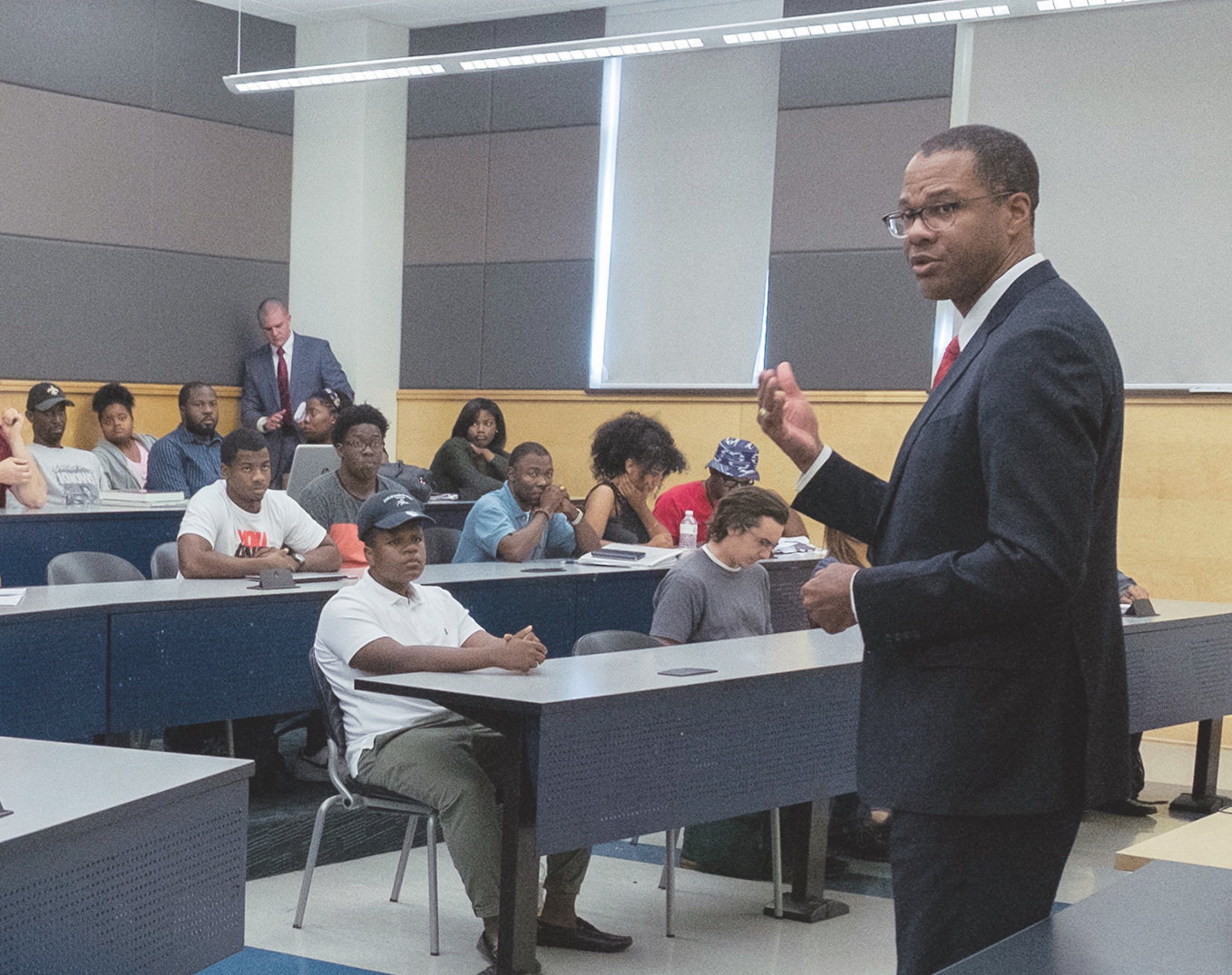by Rachel James-Terry
Christopher A. Smith, assistant secretary for Fossil Energy at the U.S. Department of Energy, talked global warming while lauding the benefits of the Mickey Leland Energy Fellowship (MLEF) Program to an overflowing room of science, technology, engineering and math students in Jackson State’s College of Science, Engineering and Technology.
“The Mickey Leland program is all about getting more underserved minorities and more women into the sciences, particularly into the challenge of developing the technologies for a clean energy economy in the future,” Smith said.
Originally called the Minority Education Initiative, the program was later renamed in honor of Congressman Mickey Leland, a prominent advocate of cultural diversity, who tragically died in a plane crash in 1989. Eligible students who are accepted into the 10-week summer program are afforded an opportunity to develop research skills through mentorships with officials and scientists in the DOE’s Office of Fossil Energy. A weekly stipend is supplied; the specific amount varies based on the student’s undergraduate, graduate or doctoral classification.
Although the program caps at 50 students per summer, Smith explained that the department looks beyond the requirements. “We don’t say, ‘Ok, let’s pick the top three GPAs’. We are really examining the entire candidate.” Smith’s multifaceted duties as assistant secretary include heading the National Energy Technology Laboratory. STEM disciplines are the crux of the lab’s production where “all the chemistry, all the engineering, all the physics, all the design go into creating energy systems of the future to reduce the amount of greenhouse gasses that come out of fossil fuel sources.”
During last year’s United Nations Framework Convention on Climate Change (UNFCC) held in Paris, the “world” unified to tackle greenhouse gas emissions and global warming – an increasing societal issue Smith characterized as “classic” and arduous. The United States and China were the first to put forth individual Intended Nationally Determined Contributions (INDC) – a plan to aid in the decrease of global warming – in anticipation of the convention.
The magnitude of U.S. and China’s actions were embodied in a parallel offered by Smith, who said: “The two countries with the two biggest economies, two biggest societies, two biggest consumers of energy; and the two biggest emitters of carbon dioxide.”
All countries were called to design a plan defining how they would contribute to the overall goal of achieving net zero emissions, hold the increase in global average temperature significantly below 2 degrees Celsius, and explore ventures to restrict the increase to 1.5 degrees Celsius by the second half of the century.
Instead of the expected 50 or 60 countries, 190 countries put forth a definitive strategy to address greenhouse emissions. “The fact that China and the United States went first showed real leadership,” Smith said triumphantly.
With regard to skeptics of climate change, the U.S. official said, “From our viewpoint, the science is clear when you have 190 countries make an implicit commitment to move forward. The debate has reached a conclusion.”










Leave a Reply